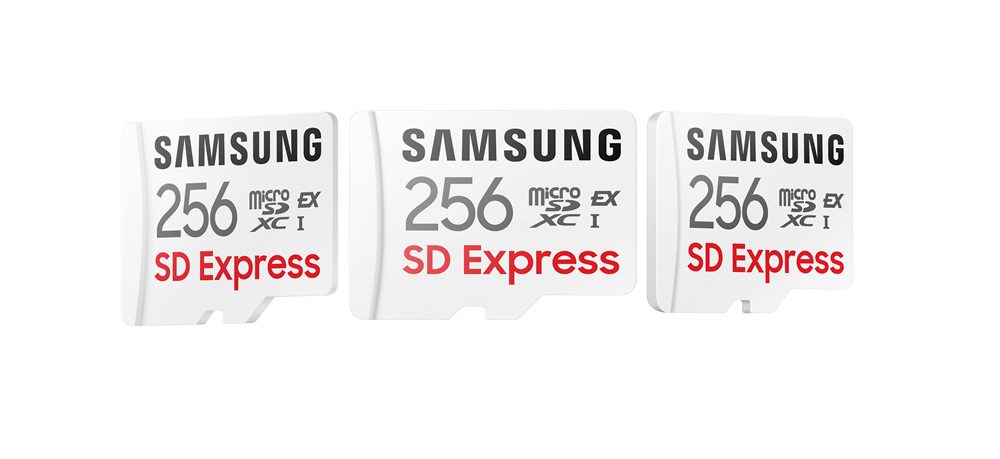Samsung shows microSD card that is faster than classic SSDs
- February 29, 2024
- 0
Samsung is launching a microSD card that achieves faster sequential transfer speeds than a classic SATA SSD via the SD Express standard. Samsung is showing an SD Express
Samsung is launching a microSD card that achieves faster sequential transfer speeds than a classic SATA SSD via the SD Express standard. Samsung is showing an SD Express

Samsung is launching a microSD card that achieves faster sequential transfer speeds than a classic SATA SSD via the SD Express standard.
Samsung is showing an SD Express card with a capacity of 256 GB. The microSD card supports the SD Express standard and can therefore handle read speeds of up to 800 MB per second. Compare that to today’s 250 Mbps for high-end UHS-II cards, or even sub-100 Mbps speeds for budget consumer cards, and you get an idea of the leap Samsung is making here. Also relevant: A classic 3.5-inch SSD connected via SATA 3.0 encounters a theoretical limit of 600 MBit/s.
The SD Express standard allows SD cards to use a full PCIe lane. The standard supports PCIe 4.0 and targets speeds between 150 Mbit/s and 600 Mbit/s: a value that Samsung exceeds with its microSD card. It goes without saying that if you want to enjoy the high speeds, you will need to connect the card to a device that also supports the standard.
The high transmission speed generates the necessary heat. The extent to which 800 Mbps can be sustained over a long period of time in real life depends on how this heat is dissipated in a particular device. The card is equipped with a developed by Samsung Dynamic thermal protectionTechnology that needs to keep an eye on temperature.
It remains a little unclear who exactly this card is intended for. You would immediately think of the new Samsung Galaxy S24 series, but this does not offer space for microSD cards. Cameras generally use other card formats. The card can act as an interesting primary drive for small computers like a Raspberry Pi, as long as they offer the necessary support and know how to handle the heat.
Samsung itself mentions AI because it feels it is necessary since this card has absolutely nothing to do specifically with AI workloads. The manufacturer itself does not clarify why this microSD card should also be included in the AI hype. The SD Express microSD card with a capacity of 256 GB will be available later this year at a price that Samsung is currently not revealing.
Source: IT Daily
As an experienced journalist and author, Mary has been reporting on the latest news and trends for over 5 years. With a passion for uncovering the stories behind the headlines, Mary has earned a reputation as a trusted voice in the world of journalism. Her writing style is insightful, engaging and thought-provoking, as she takes a deep dive into the most pressing issues of our time.